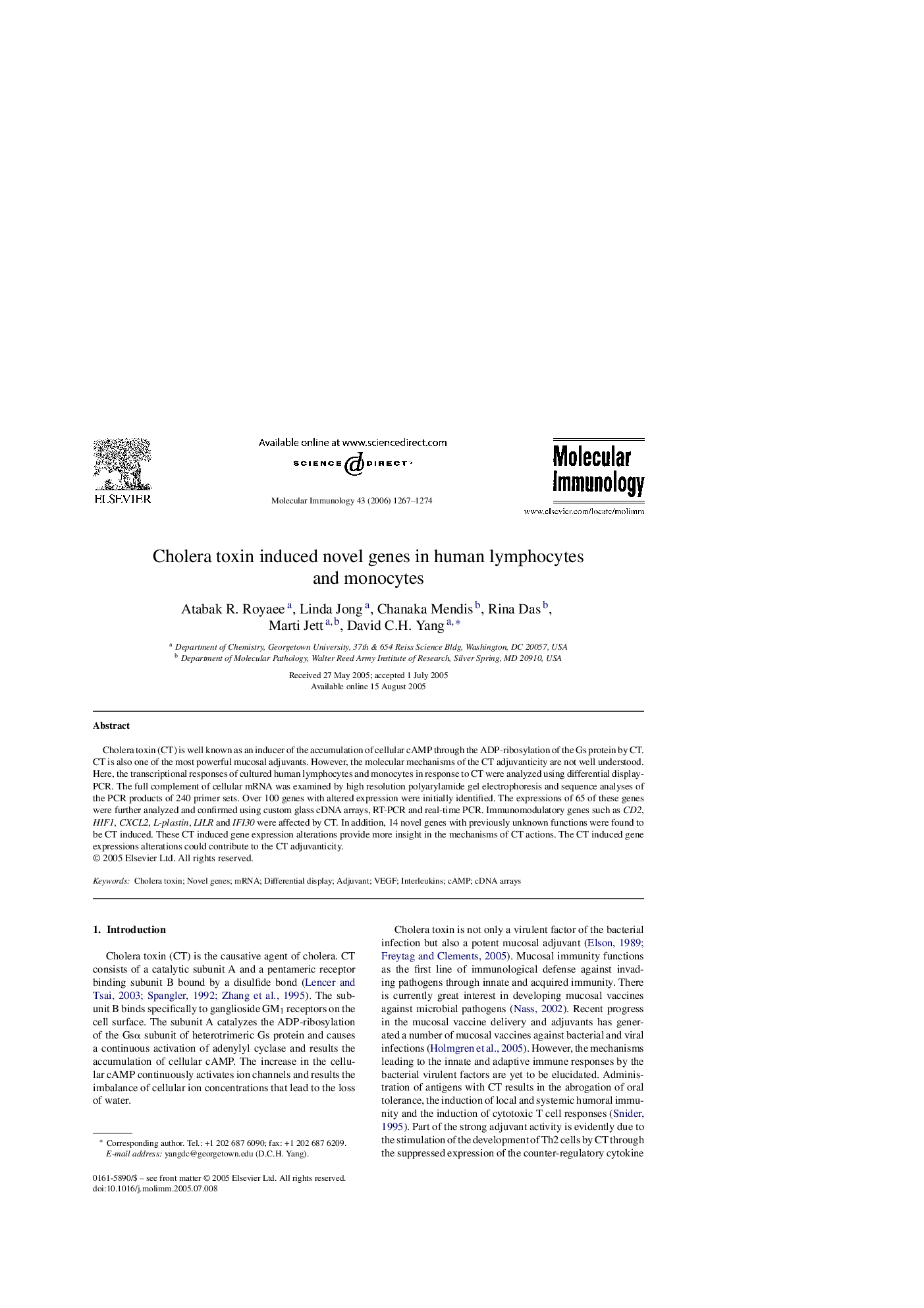| Article ID | Journal | Published Year | Pages | File Type |
|---|---|---|---|---|
| 2833053 | Molecular Immunology | 2006 | 8 Pages |
Abstract
Cholera toxin (CT) is well known as an inducer of the accumulation of cellular cAMP through the ADP-ribosylation of the Gs protein by CT. CT is also one of the most powerful mucosal adjuvants. However, the molecular mechanisms of the CT adjuvanticity are not well understood. Here, the transcriptional responses of cultured human lymphocytes and monocytes in response to CT were analyzed using differential display-PCR. The full complement of cellular mRNA was examined by high resolution polyarylamide gel electrophoresis and sequence analyses of the PCR products of 240 primer sets. Over 100 genes with altered expression were initially identified. The expressions of 65 of these genes were further analyzed and confirmed using custom glass cDNA arrays, RT-PCR and real-time PCR. Immunomodulatory genes such as CD2, HIF1, CXCL2, L-plastin, LILR and IFI30 were affected by CT. In addition, 14 novel genes with previously unknown functions were found to be CT induced. These CT induced gene expression alterations provide more insight in the mechanisms of CT actions. The CT induced gene expressions alterations could contribute to the CT adjuvanticity.
Keywords
Related Topics
Life Sciences
Biochemistry, Genetics and Molecular Biology
Molecular Biology
Authors
Atabak R. Royaee, Linda Jong, Chanaka Mendis, Rina Das, Marti Jett, David C.H. Yang,
